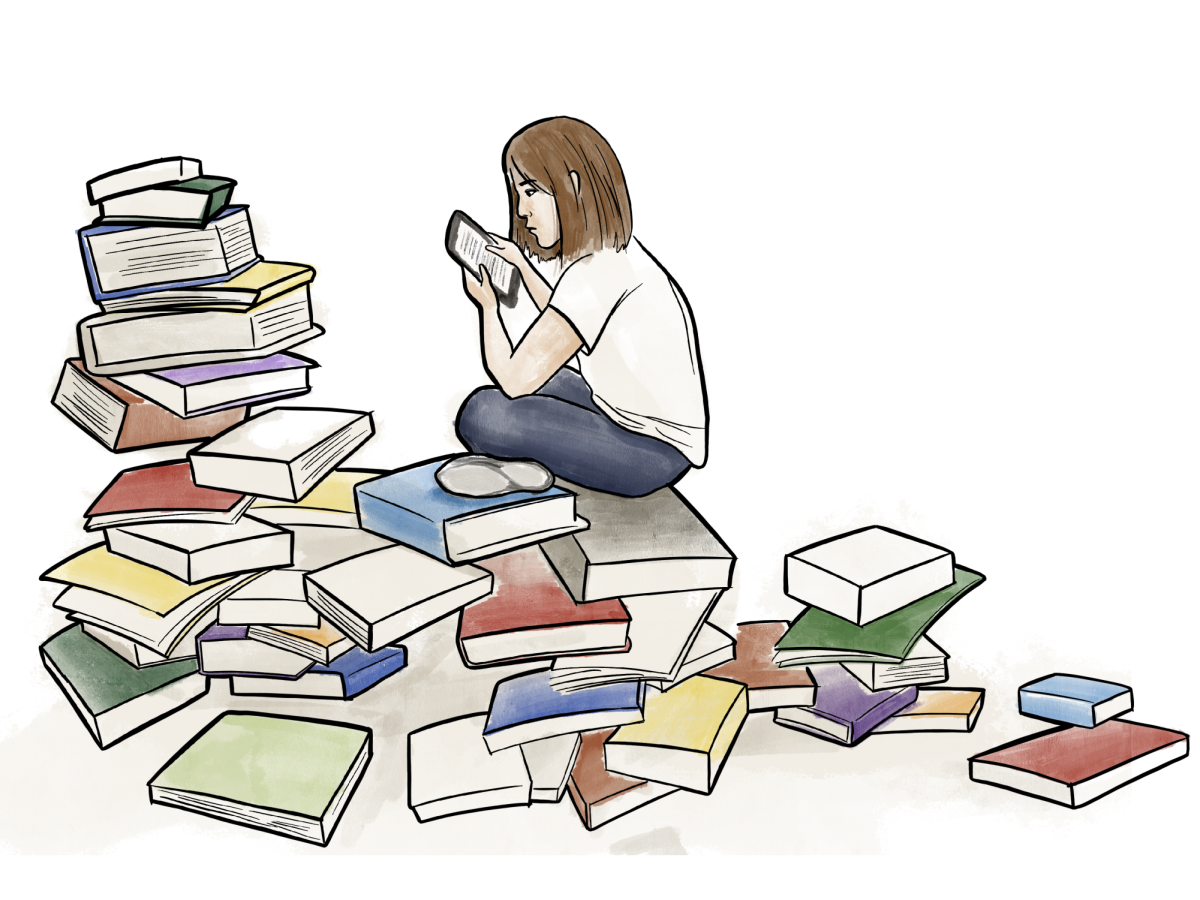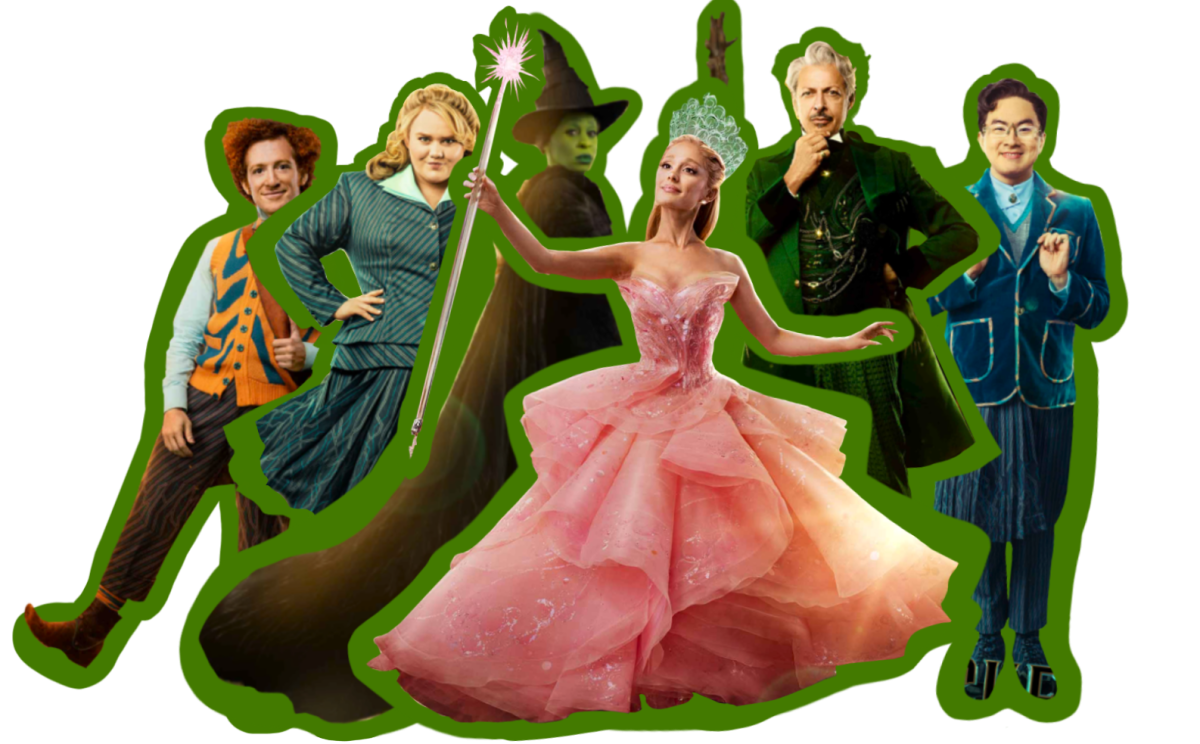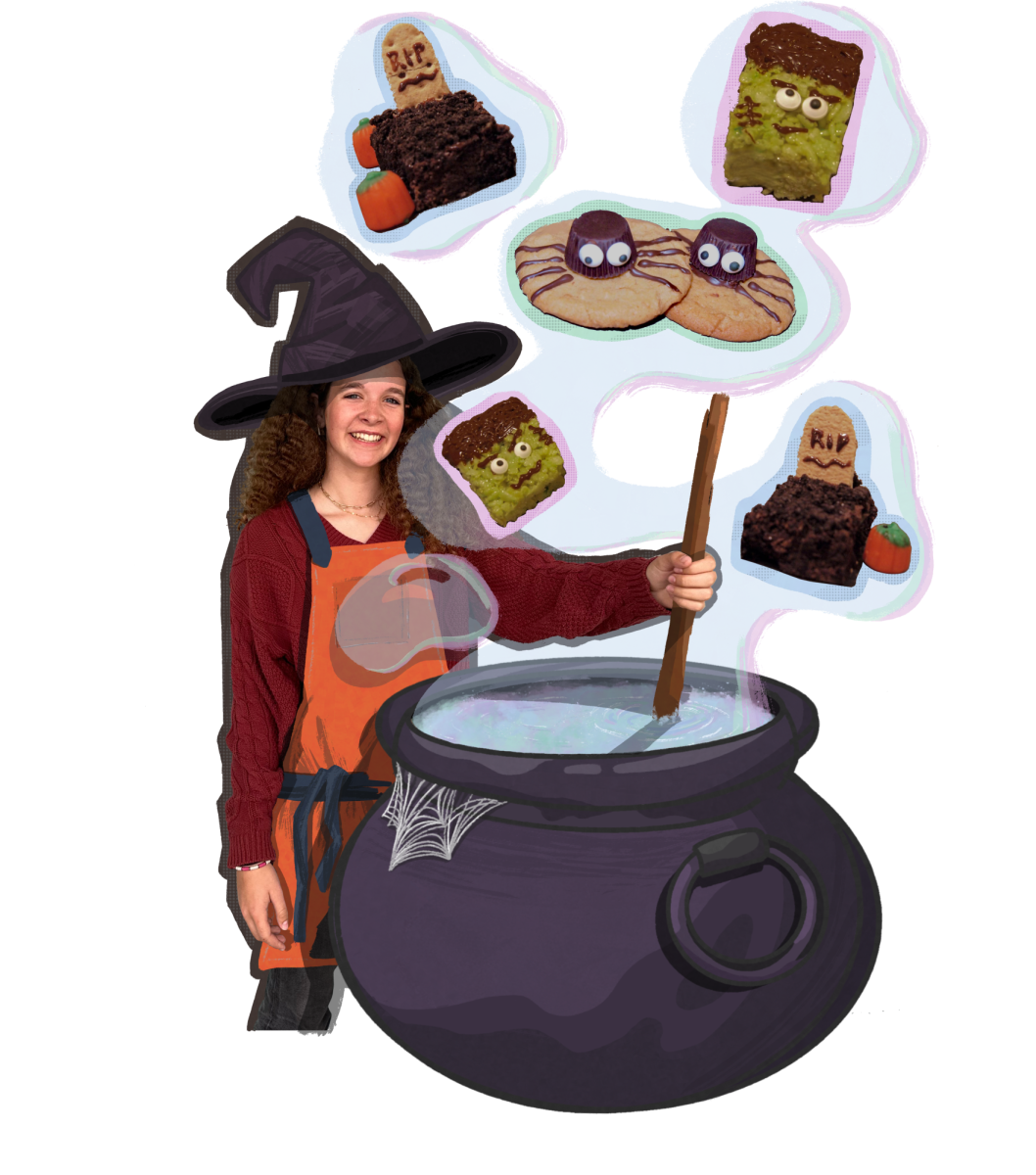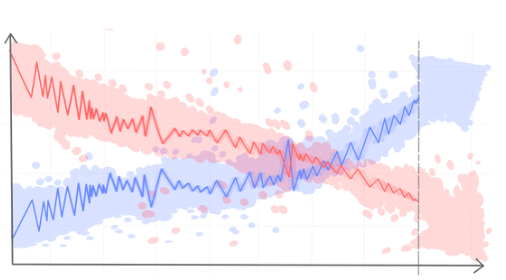Growing up, many students saw books as portals into new universes and fantastical realms. Novels transported readers to new places such as the enchanting Hogwarts Castle from “Harry Potter” or the magical Camp Half-Blood from “Percy Jackson,” sparking their imagination and developing their comprehension skills.
Now, however, books are shelved for the latest iPhone, leaving Hogwarts to Harry. At Gunn, the growing pressures of academic responsibilities and extracurricular pursuits, alongside the attraction of online activities, forces many students to put reading for pleasure on the back burner.
Librarian Daljeet Gill has noticed this phenomenon. Through book displays, “blind dates” with books, staff picks and other initiatives, he and the other librarians have been trying to spark students’ interest in reading again.
“It’s interesting,” Gill said. “When freshmen come, they check out a lot (of books), and as they become more engrossed in academics, we see them less and less. It’s about time management — where they find time among sports, clubs and other extracurriculars.”
Sophomore Davide Illouz, who juggles track and multiple musical ensembles, pushes most reading to the weekend.
“During the week I have too much going on, but on weekends I can relax and read before or in the middle of studying,” Illouz said.
According to a 2022 survey conducted by GoodEReader, 64% of those under 17 years old would rather play video games or watch TV than read. English teacher Katherine Ja has noticed this dynamic in the classroom.
“I have observed a decline in interest in pleasure reading, and (I) believe it is extracurriculars and videos, as well as social media, that is causing the lack of interest,” she said.
As someone who constantly checked out books as a child, Ja is working on weaving independent reading into her curriculum.
“I still believe that if the right book gets into a person’s hands, they will gobble it up, even if it is slightly challenging for them,” she said.
In 2014, the Gunn library introduced electronic books — or e-books — to reignite interest in reading for those who prefer digital interfaces.
The library’s shared digital collection with PAUSD includes reading engines such as eLibrary and Overdrive, which provide good options for nonfiction material. Students can access these applications through their PAUSD Rapid ID portals.
Although e-books are on the rise, many — including Gill — don’t see them as competitors for paper copies.
“If a kid comes in looking for a book and we only have the e-book, eight out of nine times, a student will wait for print,” Gill said. “It’s just a preference of what you’re already used to.”
That being said, students are sometimes flexible. Illouz, who often spends his Sunday mornings wrapped up in a book, likes to read regardless of the book’s format.
“Physical books are more old-fashioned and more whole-heartedly fun, while e-books are more practical and accessible,” Illouz said.
Books help Illouz take his mind off school, as well as expand his vocabulary and creativity.
“Reading is an escape from my life,” Illouz said. “I can just think about random things and imagine that I’m part of another alternate dimension.”























